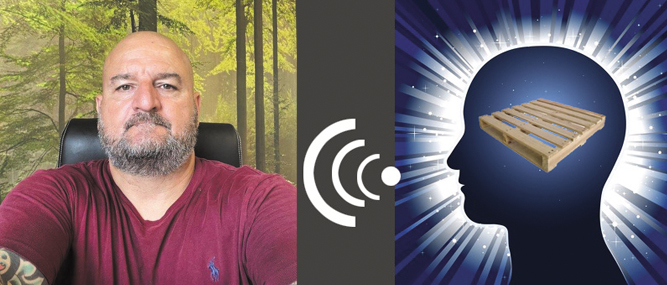Darren Turner is the director of Pontrilas Packaging Ltd., which is a large, family-owned packaging company serving major brands across the United Kingdom. He discusses recent issues facing the European pallet market.
Pallet Enterprise: How has the Brexit transition gone for the pallet industry in the UK?
Turner: I believe the biggest change has been that all pallets going into the EU must be ISPM-15 certified. Despite some considerable challenges, I feel the industry has coped well because it made a major investment in kiln capacity. This was also supported by a change in legislation; for a small period the whole pallet no longer needed treatment, and heat-treated timber could be used to repair the pallet.
However, it must also be noted that an increase in customs paperwork has added a financial burden to our business due to the extra administration charges from our EU suppliers.
Pallet Enterprise: What makes your company a good place to work?
Turner: Our company likes to ensure a positive working environment for our employees by providing a safe workspace, using modern equipment, having visible senior management, and clear health and safety guidelines. We also provide job longevity and a competitive wage to ensure our employees feel secure in their job.
Pallet Enterprise: Your company is fully integrated from logs to finished goods. What strategic advantages does this provide for you and your customers?
Turner: As we purchase logs sometimes three months-plus in advance, we can see trends in prices and demand for logs. Therefore, having our own sawmill can give our customers confidence that we can supply them even in the toughest market conditions, such as the market we are currently experiencing.
Pallet Enterprise: How are pallet user standards and requirements changing due to automation in warehouses? How is the UK white wood pallet industry capable of meeting these needs?
Turner: Pallet construction for automation has raised the bar on quality. However, it has had an impact on the second-hand market more than new pallet production as most large volumes are now produced by automation, so uniformity is not so much of an issue.
Pallet Enterprise: What lessons about leadership has your executive team learned during the pandemic?
Turner: I think the biggest challenge was continuity of our workforce from week to week, depending on coronavirus cases, self-isolation, etc., and being able to react to these constant changes. The pandemic has helped us reflect on our need to have a multi-skilled, flexible workforce going forward.
Pallet Enterprise: What’s the best business advice that you have ever received?
Turner: I suppose it was not so much advice but something I have learned being in business. I have realized over the years that sometimes we have to make tough decisions, and that you must remember it is nothing personal – just business.




